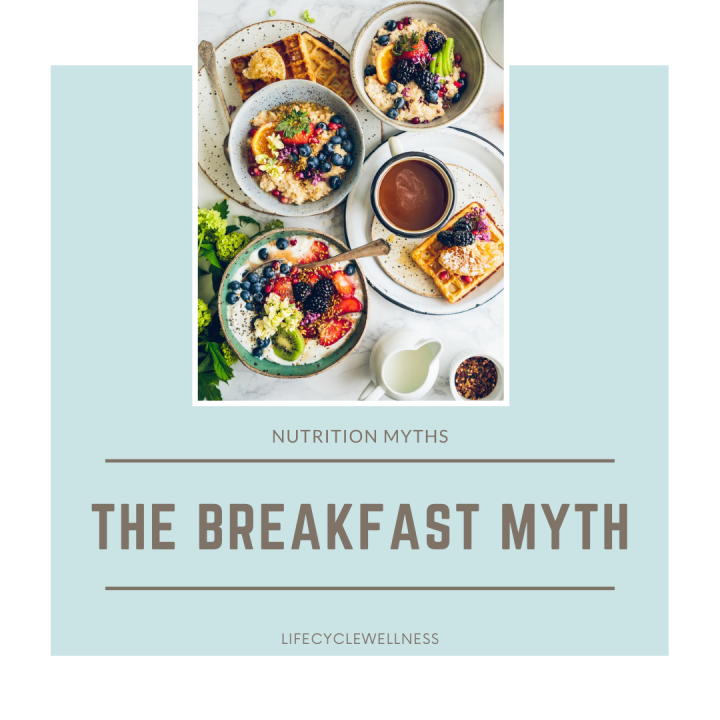 Source: bing.com
Source: bing.comIntroduction
Breakfast is considered the most important meal of the day, but it is also one of the most misunderstood. There are many myths surrounding breakfast that continue to be believed by people. In this article, we will debunk some of the common breakfast myths and provide you with the true information you need to start your day on the right foot.
Myth 1: Skipping Breakfast Helps with Weight Loss
 Source: bing.com
Source: bing.comSkipping breakfast is a common weight loss strategy, but it is not an effective one. When you skip breakfast, you are more likely to overeat later in the day and make unhealthy food choices. Studies have shown that people who skip breakfast tend to have a higher body mass index (BMI) than those who eat breakfast regularly. Eating a healthy breakfast can help you control your appetite throughout the day and make better food choices.
Myth 2: Eating a Big Breakfast is Necessary
 Source: bing.com
Source: bing.comWhile breakfast is important, it doesn't have to be a big meal. Eating a healthy, balanced breakfast that includes protein, fiber, and healthy fats can help you feel full and satisfied until your next meal. You don't need to eat a massive breakfast to get the energy you need for the day.
Myth 3: Breakfast Should be Sweet
 Source: bing.com
Source: bing.comMany people believe that breakfast should be sweet, but that's not true. Eating a breakfast that is high in sugar can lead to a crash in energy later in the day. Instead, try to eat a breakfast that is high in protein and fiber. Some good breakfast options include eggs, yogurt, whole-grain toast, and fruit.
Myth 4: Breakfast Cereals are Healthy
 Source: bing.com
Source: bing.comWhile many breakfast cereals are marketed as healthy, they are often loaded with sugar and refined carbohydrates. These types of cereals can cause a spike in blood sugar levels and leave you feeling hungry soon after. Instead, look for cereals that are low in sugar and high in fiber. Oatmeal is a great option because it is high in fiber and can help you feel full until your next meal.
Myth 5: Breakfast Should be Eaten Early in the Morning
 Source: bing.com
Source: bing.comThere is no set time that breakfast should be eaten. Some people prefer to eat their breakfast early in the morning, while others prefer to eat it later in the day. The important thing is to eat a healthy breakfast that will give you the energy you need for the day ahead.
Myth 6: Coffee is a Good Breakfast
Coffee is not a good breakfast. While it can give you a quick burst of energy, it is not a substitute for a healthy, balanced breakfast. Coffee can also lead to dehydration, so it's important to drink water alongside your coffee.
Myth 7: Breakfast Should be Cooked
 Source: bing.com
Source: bing.comWhile a cooked breakfast can be delicious, it's not necessary. There are many healthy breakfast options that don't require cooking, such as yogurt, fruit, and nuts. These options are quick and easy to prepare, making them perfect for busy mornings.
Myth 8: Eating Breakfast Every Day is Boring
 Source: bing.com
Source: bing.comBreakfast doesn't have to be boring. There are many different breakfast options to choose from, including smoothie bowls, breakfast burritos, and avocado toast. Experiment with different ingredients and flavors to find breakfast options that you enjoy.
Myth 9: Skipping Breakfast Saves Time
 Source: bing.com
Source: bing.comSkipping breakfast may seem like it saves time, but it can actually make your mornings more hectic. When you skip breakfast, you are more likely to feel tired and sluggish, making it harder to get things done. Eating a healthy breakfast can give you the energy you need to start your day off right.
Myth 10: Breakfast is Only Important for Children
 Source: bing.com
Source: bing.comWhile breakfast is important for children, it is just as important for adults. Eating a healthy breakfast can help adults maintain a healthy weight, improve their cognitive function, and reduce their risk of chronic diseases.
Conclusion
Breakfast is an important meal that should not be skipped. Eating a healthy, balanced breakfast can give you the energy you need to start your day off right. By debunking these common breakfast myths, we hope that you have a better understanding of what makes a healthy breakfast and can make informed choices about your morning meal.